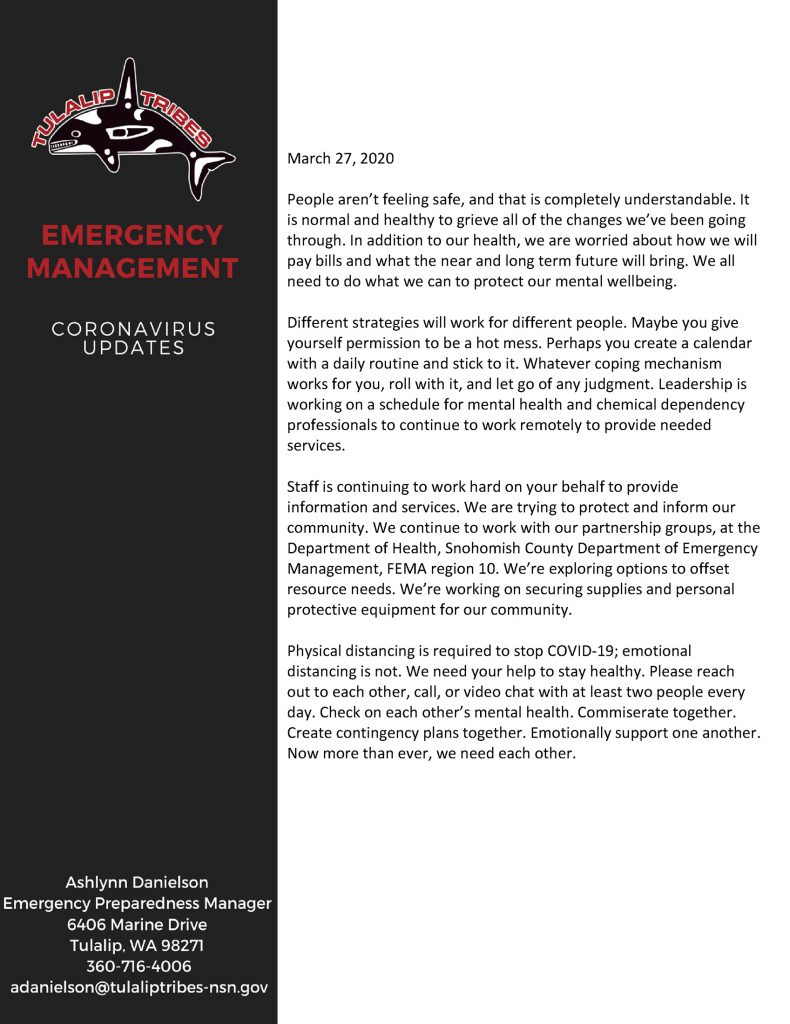
Tulalip Tribes Bulletin, March 27, 2020

syəcəb

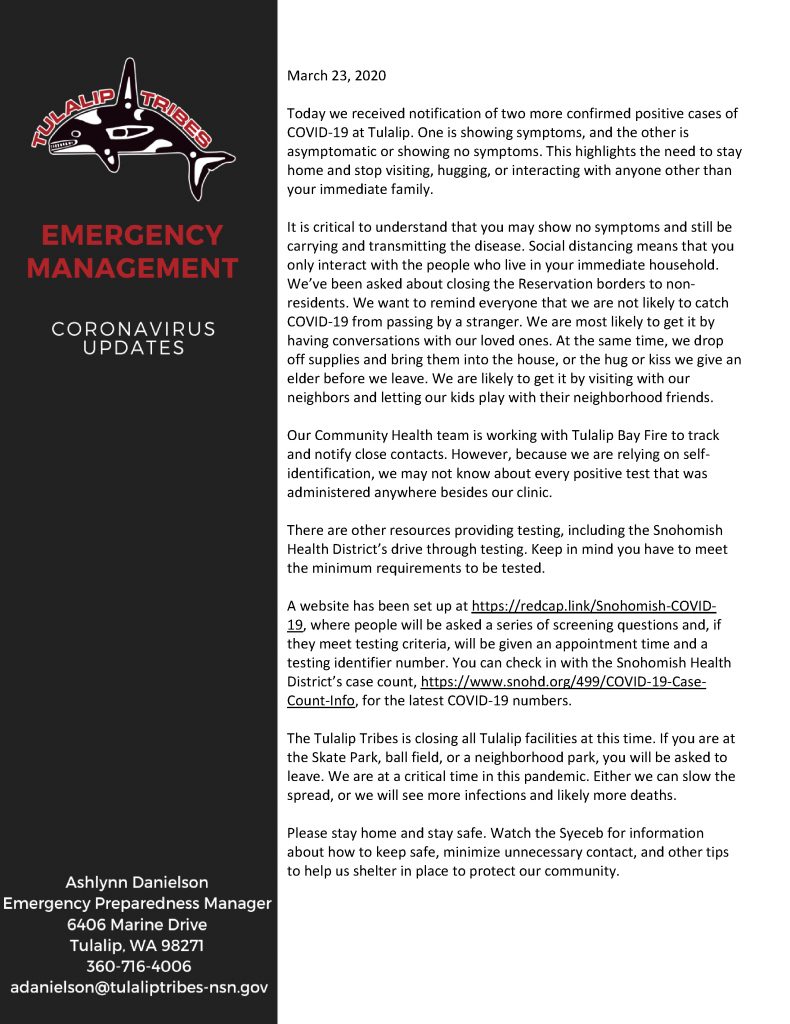
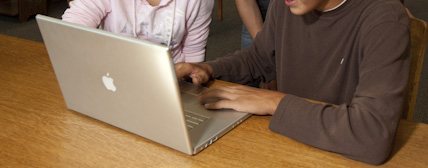
By Jason Douglas
Most, if not all of us, are new to a government-imposed lockdown. Making the situation even harder, is the across-the-board unemployment that many Washington state citizens are experiencing, now.
The need for constructive methods for tackling this glaring side-effect of the Covid-19 virus outbreak is mounting, daily.
However, there is no reason to become overwhelmed, and give up. Many local resources are showing promise for all of us who are being negatively affected by quarantine.
While there are still opportunities for outdoor activities (while maintaining social distancing), a shift toward online education, as well as recreation, will be key, for staying socially-active and feeling healthy.
First, let’s go over some outdoor-related, stay-at-home activities:
Gardening/Home Maintenance
Spring is upon us, after all. Though gardening and planting anything new may be challenging, with the closure of retail hardware and garden stores. Do what you can! Even a simple lawn-mowing can make you feel more vital, weather-permitting.
Walking/Biking
Taking regular walks, or riding a bike, helps keep you feeling fit, and is still absolutely permissible, under current quarantine guidelines. Just remember the “6-foot rule”, when interacting with anyone else outside your family.
Our furry friends and family members, like the family dog, can be great motivators. Dog-walking is doubly good for shaking off those Wintertime blues.
While these outdoor activities fall under the normal category for this time of year, we are fortunate to still be able to participate in them.
Some of the indoor,online-oriented adaptations of our regular day-to-day include:
Online grocery-shopping and home grocery delivery
Tulalip Wal Mart offers their food selection online, anytime. And their Grocery Delivery offers a convenient, scheduled drop-off for home delivery.
Fred Meyer delivers groceries to your door, as we, with a $9.95 delivery fee.
Amazon also offers grocery delivery. But you may need to confirm availability at checkout, due to overwhelming orders, and a need to prioritize medical supplies orders, etc…
Staying in touch with loved ones and friends, via Zoom, Marco Polo, Skype, FaceTime, etc.
It feels better to see the faces and hear the voices of those we love, even if they are in a different geographic location from us. Thankfully, all we need is an internet connection and computer, to remain social and support one another.
Most kids and teens are obviously going to be online gaming with xBox, PlayStation, and the like…..but there are also opportunities for combating boredom through:
Cartoonnetwork. Com
Pbskids.org
Lol.disney.com
Funbrain.com has games and reading materials for 1st thru 8th graders
Seek out local gyms and yoga studios who offer online exercise classes
Finally, on a more cultural level, there are many fulfilling Native activities, such as entertaining stories and historical info to read at www.hibulbculturalcenter.org.
Although the Tulalip Lushootseed Department is closed until March 31, you can visit their website: www.tulaliplushootseed.com or Facebook at Lushootseed Language for Lushootseed materials.
For the tactile approach to interacting with Tulalip traditions, perhaps sewing and beading while working on tribal regalia will help keep an important component of humanity and hope.
These are strange new times, with new challenges, for us all to overcome. Thankfully, we also live in times where for better or worse, we ARE a more global community. With this comes a feeling of togetherness, which can be a powerful weapon, even when we aren’t arm-in-arm, but rather connected via devices.
And don’t forget to get fresh air, every once in awhile!
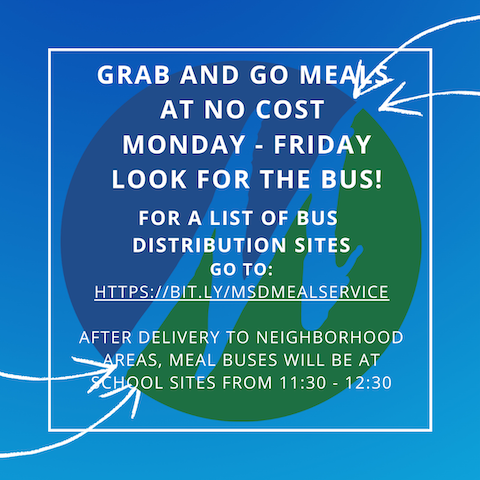
Below are Marysville School District food distribution routes and times, for the Quil Ceda Tulalip area, for delivering food (breakfast and lunch) to students. Matt Remle, Marysville Pilchuck High School Native Liaison, will be on the Quil-Ceda Tulalip route. Matt and fellow volunteers delivered over 3,500 meals on Monday, March 23.
Visit www.msd25.org for more information.
Grab and go meals from the bus locations will continue to be at no cost and for all youth ages 1-18 and those enrolled in the 18-21-year program.
Quil Ceda Tulalip Area
Route: 21
Route: 56
Route: 74
Route: 92
Route: 102
Route:106
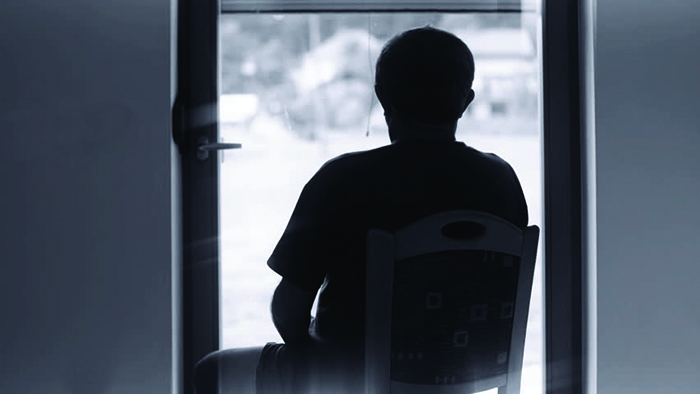
By Micheal Rios, Tulalip News
The 2019 novel coronavirus (COVID-19) is a worldwide crisis. Its rapid spread has reached Earth’s far corners and no end to the infectious pandemic is in sight. On the global level, at the time this article was written, there are 184,976 confirmed cases and 7,529 deaths reported in 159 countries, according to the World Health Organization (WHO).
Because of a general lack of testing or lack of sufficient supplies to even perform accurate testing amongst the global health community, the number of people who have contracted the virus is presumed to be much higher than the confirmed cases. The good news is that the infected mortality rate is estimated between 1% – 3.4%, and fewer than 5% of all confirmed cases are deemed critical.
People of all ages can be infected by the coronavirus. However, older people and people with pre-existing medical conditions (such as asthma, diabetes, and heart disease) appear to be more vulnerable to becoming severely ill with the virus.
Typical symptoms, which develop quickly, include a high fever, dry cough, headaches, muscle aches and fatigue. In the most severe cases, breathing difficulties arise that require intensive medical care.
With the endless supply of fear and panic-inducing content produced from most mainstream 24/7 news cycles, it’s increasingly difficult to remain calm in the wake of corona chaos. Yet, it’s in these trying times that being mindful is of utmost importance. Being properly prepared and knowing what to expect can make all the difference.
One Tulalip family who recently contracted, endured and overcame the infamous virus shared their experience with Tulalip News under the condition their identities remain anonymous. We will refer to them as the Doe family; husband John, wife Jane, and their child Jaimie.
On Sunday, March 8, the family felt great. They were living out their normal weekend routines and preparing for the week ahead. Little did they know their sense of normalcy would come to a screeching halt just hours later.
Their Monday morning routine went as usual with John going to work. But as the day went along he started to feel a little warmer than normal. Around noon he received a phone call from his wife Jane who said she had a fever. Finding the timing odd, he called their child Jaimie who also admitted to running a temperature. So John went home and checked his temperature with a thermometer. It showed 101. He knew then the situation was worrisome.
“I called my primary doctor and answered a series of questions over the phone,” said John. “He recommended we call Snohomish County Health District and notify them first, then go to Everett Clinic in Smokey Pt. because they were doing COVID-19 testing.”
The family unit went to the Everett Clinic facility at 6:00p.m. where they were triaged in a large medical tent with medical personal masked up, just like a scene out of a movie. By that point, each member of the family were experiencing fever, sinus pressure and headache. They underwent testing for nearly an hour, including being tested for two of the most common strains of influenza or the flu.
“At that time, we were told they were only administering the COVID-19 test to first responders and people who’ve come into confirmed contact with the virus,” explained John. “You could say we were never officially diagnosed with it because they refused to give us the COVID test, but we tested negative for the flu and everything else. Multiple members of the medical staff told us that our symptoms lined up exactly with coronavirus and there was no need to test us because the results were obvious.
“We were told then to contact our local health precincts and let them know of our status and that we’d be self-quarantining until our fever was gone for at least 72-hours,” continued John. “Of course we wanted the confirmation test so we’d have peace of mind. But we were literally told by members of Snohomish County Health District and Everett Clinic, ‘From your symptoms it’s obvious what the results will be. There’s no need for a confirmation test. If any member of the family begins to experience breathing problem, then go to the hospital.’”
They returned home, reached out to each person’s job, Tulalip Community Health, the Board of Directors, and Tulalip Bay Fire Department to make them all aware they’d be self-quarantining. They even posted a sign in the window letting their neighbors and anyone else know of their status.
Over the next few days their symptoms continued to worsen. The fever would continually spike at 104, while a persistent dry cough made the muscle ache and headache worsen.
“The worst part by far is the fever, followed by the constant head pressure that feels like someone is literally squeezing your head,” shared the family via telephone on Day 5 of their self-quarantine.
Fortunately, the Doe family had been taking precautionary measures as early as January when the first confirmed case of COVID-19 struck Washington State. That case was in Snohomish County. It was shortly after hearing that news, John and Jane began slowly stockpiling necessities. They were pretty much set on the essentials, but found out they hadn’t exactly prepared for conditions when they came down with the sickness.
“So many people are buying supplies now to remain indoors and avoid getting COVID, but what you’ve also got to prepare for is the scenario where you and your family actually catch the virus,” advised the recovering family from their first-hand experience. “What worked best for us was Gatorade and Ibuprofen. A lot of both.”
Gatorade to replenish the body’s fluids and provide essential electrolytes being lost from a 104 degree fever, and Ibuprofen to help reduce the non-stop muscle aches and head pressure. Any kind of electrolyte beverage or on-the-shelf anti-inflammatory may be just as effective to help alleviate the signature symptoms of coronavirus. A thermometer to occasionally check on body temperature and immune boosters, like Airborne or Emergen-C, are also highly recommended.

Being in self-quarantine, they relied on a family member to complete resupply runs and door drops when needed. When they were running low on Gatorade, Ibuprofen, and any other essential items they’d simply call or text their designated support member and he’d fill their order and drop it outside their door. This system fulfilled the intended results of a self-quarantine, which is to minimize the risk of passing on an infection to anyone else.
The Doe family reported not really having much of an appetite nor any digestive issues. They went as far as finding the current toilet paper crisis pretty amusing. “We don’t understand why everyone wants to horde all the toilet paper. Or food for that matter. The priority should definitely be to have enough adequate medicine and fluids on hand,” shared the family.
By Day 7 of their self-quarantine, the family reported being fever-free. Their cough had all but subsided and only mentioned some slight chest pressure. On Day 8 they said their spirits have returned fully, the fever remains gone, and they were looking forward to resuming some semblance of normalcy. With so many businesses shut down, entire school districts closed, and large public gatherings outright prohibited for the foreseeable future, what their new normal will be is a mystery. For now, they are simply relieved to have endured a pandemic sweeping the globe and intend to share their experience to help others be prepared.
Tulalip Pharmacy Changes:
For the Health and Safety of the community and to ensure continued service, the Tulalip Pharmacy will start “white gloves” service. The doors will be closed and a staff member will be stationed at the door, that staff member will bring in your prescription, then deliver meds to the patients’ car. No one will be allowed to wait in the pharmacy.
Dear Tulalip Clinical Pharmacy customers: Several patients expressed concerns about medication shortage due to supply chain issue in China (China supplies a significant amount of drug ingredients to the world). I want to assure you that we are currently very well stocked on most medications. It’s our standard operating practice to overstock pharmacy at the beginning of the year , partly to take advantage of volume discount and partly to protect us from situation like this. I have no doubt we will be able to provide uninterrupted pharmacy service beyond this challenging situation.
To reduce the chance of COVID-19 transmission at the pharmacy and to ensure safety for everyone, we have implemented the following precautionary measures:
What you can do to help:
Please don’t hesitate to contact me or my staff if you have any concerns. We will do our very best to accommodate your prescriptions needs.
Kelvin Lee
www.tulalipclinicalpharmacy.com


With health officials now reporting 19 confirmed cases of coronavirus (COVID-19) in Snohomish County, the Tulalip Tribes is working to ensure the health and safety of its elders. Since elders are identified as some of the most vulnerable to COVID-19, extra precautions are being taken within the Tulalip community.
According to Rochelle Lubbers, Chief Administrative Officer of Tulalip Tribal Government Operations, as of Friday, March 6, the Katherine “Molly” Hatch Senior Center has temporarily closed its doors until tribal officials gain more information about the spreading virus. Bingo sessions, elder commission meetings and other gathering events have been canceled.
The Tribe considers those to be over 62 years-of-age an elder, and will be delivering soap, paper towels, hand sanitizers and information about the virus to all tribal member elders on the reservation. Following that, deliveries will be made to seniors over 55 years of age.
Elders are advised to stay in their houses to limit the exposure to a possible outbreak. If an elder is part of your household, buy supplies and help with errands if you can. Also be sure to call and check in on elders you know may need help. And most importantly, wash your hands regularly with an alcohol-based hand rub or with soap and water, and avoid touching your face.
If an elder has an illness, contact their doctor. If they are experiencing life-threatening symptoms call 911. For more information about COVID-19, contact the Snohomish County Health District hotline at 1-800-525-0127.
Elders are encouraged to tune in to Tulalip TV, Channel 3/503 (HD) for video updates from Tribal leaders about COVID-19. Tulalip TV can also be accessed at TulalipTV.com, the TulalipTV App, available from the Apple App Store/Google Play Store, and Roku and FireTV, Tulalip TV channels.
Please continue to check in with Tulalip News, at tulalipnews.com and Tulalip News Facebook and subscribe to emails for the most current information. You can also subscribe to the text alert line (text STORM to 30644), to receive updates and alerts.

Coronavirus Q & A
Disease: COVID-19
Virus: SARS-CoV-2
With so much information about the novel coronavirus, it’s challenging to decide what is accurate and useful. The Tulalip Emergency Management Department, in collaboration with the Karen I. Fryberg Health Clinic and Snohomish County Public Health District, is committed to updating you about the virus regularly. We will plan to release our updates Mondays, Wednesdays, and Fridays, as well as when new information becomes available. For the latest accurate information, we encourage people to visit the following websites: CDC (Center for Disease Control) https://www.cdc.gov/coronavirus/2019-ncov/index.html, Snohomish County Health District https://www.snohd.org/, or the Department of Health https://www.doh.wa.gov/.
The following questions have come up in the last few days. Please let us know if you have additional questions you’d like us to answer—email questions and concerns to Ashlynn Danielson, Emergency Management, adanielson@tulaliptribes-nsn.gov.
Q: How do I know if it is COVID-19 or the flu?
A: COVID-19 and the flu have very similar symptoms. The COVID-19 includes cough and fever, particularly a fever that goes away and returns. Most people can overcome COVID-19 without medical intervention. If you suspect you have the COVID-19, please contact your regular medical provider via phone. If you are experiencing life-threatening symptoms, please call 911.
Q: What can I do to stay safe?
A: Wash hands frequently for 20 seconds with soap and water. Covering your mouth and nose with a tissue when coughing or sneezing, then throwing the tissue in the trash and washing your hands. If you develop symptoms, reduce the stress on the healthcare system and your risk of exposure by staying home and calling the doctor. Make it a habit to avoid touching your eyes, nose, and mouth. It is easy to transfer germs from surfaces to your body when you touch your face.
Q: Are there any COVID-19 cases at Tulalip?
A: There are likely possible positive cases that have been identified at Tulalip. A possible positive case is a patient who exhibits the signs and symptoms and is presumed to have the disease. These patients are then tested if they show moderate to severe symptoms. Testing capabilities are limited, and patients with mild symptoms are generally not checked to protect the supplies for the most critical patients. The Emergency Management Team, in collaboration with Community Health, local Tulalip Bay Fire District 15 and Marysville Fire Department, and Tulalip Police Department, have a plan in place to track presumptive positive cases to keep our public informed and reduce the spread of the disease. Presumptive positive is a term which means that while local testing has produced a positive result for COVID-19, the sample is still awaiting confirmation from the CDC.
Q: Does handwashing work better than hand sanitizer?
A: Soap and water are better than hand sanitizers at removing specific kinds of germs, especially on dirty hands. However, for people who have mobility issues or lack of access to clean running water, hand sanitizer is useful in a pinch.
Q: How do I decide whether to stay home from work, go to a clinic, or go to the hospital?
A: If you have a fever and cough, as well as any flu-like symptoms, please call your regular health care provider. They will do a phone triage, or a series of questions to determine if it is likely that you have contracted COVID-19. Based on your doctor’s recommendation, you should self-isolate and limit your exposure to others, visit a healthcare facility, or, if you are experiencing life-threatening symptoms including shortness of breath or chest pain, call 911.
Q: I need to be seen, but my doctor told me to stay home. Why are they treating me like this?
A: Your doctor may ask you to self-isolate, or stay home and limit your exposure to others, to protect you and the people around you. In many cases, patients are putting themselves at risk for contracting the disease by going to a medical facility when they do not need to. In other cases, you may risk infecting others. Lastly, in situations like this, health care facilities can become overwhelmed with minor illnesses, which reduces their ability to take care of those patients who do experience life-threatening symptoms from the disease.
Q: What is Tribal Government doing?
A: Tribal Government administration has briefed managers about the situation and is encouraging staff to be diligent about sanitizing high-touch areas, including keyboards, doorknobs, and handrails. Tribal government is encouraging staff who have COVID-19 symptoms to stay home from work for at least seven days and/or 72 hours after symptoms resolve, whichever is longer. The Pharmacy will be holding a seasonal influenza clinic at the Administration building to provide staff with a seasonal flu vaccine. This is a protective measure. This vaccine does not protect against COVID-19. When a person contracts seasonal influenza, it can raise their risk of contracting COVID-19, so flu vaccines are being recommended. Some policies are being temporarily relaxed to allow employees to take sensible precautions. For example, supervisors may waive the requirement for a doctor’s note before returning to work. We are doing this to reduce the non-emergent workload for medical facilities.
Q: What are our casinos doing?
A: Leadership is putting strategies in place to both sanitize the facilities more thoroughly and protect staff and clients by encouraging team members who exhibit symptoms of COVID-19 to stay home from work based on current medical recommendations. Leadership will be flexible about employee leave to take care of the health of our community.
Q: Will our health clinic close if it gets worse?
A: Staff at the Karen I. Fryberg Health Clinic have been involved in planning and are putting precautions in place to make sure that staff stays healthy, and the clinic remains operational. As you enter the clinic, a staff member will ask you to sanitize your hands. If you show any signs of a cough or upper respiratory infection, you may be provided a mask and asked to wear it to contain your cough. Another new procedure is phone triaging. This means that patients who exhibit symptoms of COVID-19 will be asked a series of questions to determine if it is likely they have contracted the disease. Patients with mild symptoms will be advised to isolate, to protect them from contracting the illness if they do not have it, and to prevent them from spreading the illness if they are ill with COVID-19. Patients with moderate symptoms may be asked to come in and call when they arrive. At that point staff will **
Q: Why do emergency personnel need masks if they don’t work?
A: Masks will not stop you from contracting COVID-19 since they do not cover your eyes and do not filter out viruses. However, if you are already sick, a mask can limit the distance that droplets travel when you cough or sneeze. Medical professionals ask patients exhibiting symptoms to wear a mask.
First responders and emergency personnel will wear full personal protective equipment if seeing a client suspected of or infected with COVID-19. They wear both masks and goggles to protect the eyes, nose, and mouth. They may also wear disposable gowns and foot covers that can be disposed of in a medically safe manner to reduce transmission of COVID-19.
Q: COVID-19 isn’t the flu, why should I get a flu shot?
A: Although the seasonal flu shot will not protect you from COVID-19, it can reduce your risk of getting the flu. Coming down with any illness can increase your risk of catching a second illness, which is why we recommend people get a seasonal flu vaccine if they have not already.
Q: What is the incubation period?
A: This virus is new; we are learning more about it every day. The current medical recommendation is that if you show symptoms to isolate yourself. Encourage family members to stay six feet away to reduce the transmission of the disease. Do not return to work or school for seven days or 72 hours after all symptoms have resolved, whichever is longer.
Q: How can I talk to my kids about COVID-19 when I am scared that it won’t be all right?
A: Viruses have been around for all of human history. We can work to limit our exposure and contain it. COVID-19 doesn’t appear to have the high fatality rates of viruses like Ebola or Hemorrhagic virus. Most healthy people have mild symptoms, and their immune system deals with the virus. We can take care of ourselves and the people around us, especially elders and those with compromised immune systems, by letting people know if we are sick and staying away from others who are sick. We care about one another, and even though this is a scary time, we’ll get through it together.
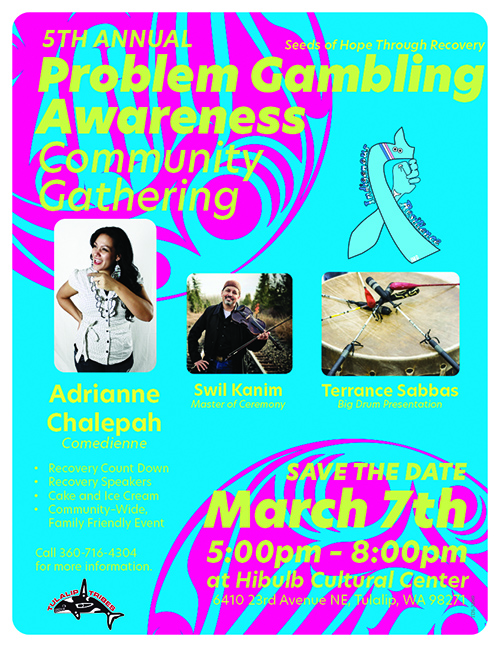
By Kalvin Valdillez, Tulalip News
“It’s so widespread, but the societal norm is that it’s not accepted as a disease,” said Tulalip Problem Gambling Counselor, Robin Johnson. “A lot of people who come and see us will say that they feel like they don’t have a real problem, so this is raising awareness about the fact that problem gambling is a disease and also of the detriments that it causes in real life. There is help. You are not alone.”
The Tulalip Tribes Family Services Problem Gambling Program invites you and yours to a special soiree on the evening of March 7th. A popular community event, and highly anticipated within the recovery circle, the annual Problem Gambling Awareness Gathering promotes healing, education and awareness about an addiction that nationally affects approximately six million individuals and their families each year, according to the National Council on Problem Gambling.
“In most Indigenous communities there’s higher risk of acquiring a gambling disorder,” explained Problem Gambling Coordinator, Sarah Sense-Wilson. “That’s because of co-occurring disorders, mental health, addiction, proximity to gambling establishments and trauma issues. Those things all factor into why Indigenous populations tend to have vulnerability for a gambling disorder.”
For half a decade, the Tulalip Problem Gambling program has actively taken part in a countrywide initiative, Problem Gambling Awareness Month, by hosting local events and providing support to those in need each March. The campaign originally began over fifteen years ago in response to the amount of sports betting surrounding the NCAA March Madness college basketball tournament. Since Tulalip’s involvement in the awareness month, recovering gambling addicts who live at Tulalip, or in nearby cities, have found a sense of community and people who they can relate to and confide in during their journey to recovery.
“The theme for this year’s Problem Gambling Awareness month is ‘Seeds of Hope Through Recovery.’ That comes from the problem gambling recovery community, they’re the ones who conceptualized the theme,” Sarah said. “It impacts everybody in the community at some level, especially in our tribal communities, because we’re so small and tight knit. When I first started here, there was a real void in any collective effort to promote health and wellness around this issue of problem gambling, throughout the region not just at Tulalip. And really, there are no collective efforts or campaigns in Indian country to spotlight this as illness or disease.”
As a people, Native Americans are at the highest risk of developing a gambling habit. A 2019 study conducted by the National Institute on Alcohol and Related Conditions showed that 2.3% of the entire Indigenous population are currently battling the gambling addiction, one of the highest percentages in the nation. Recognizing that this is an issue affecting our tribal people, several Northwest tribes are addressing problem gambling by developing programs to help their people from within the community. Many of those nations, whose programs are still in the infancy stage, often send representatives to participate in events at Tulalip to get a better understanding of how the tribal people are interacting with the program.
Sarah explains, “Our program is a national model program because of the comprehensive services we provide and the expansive work that we’ve created here developing not just treatment, but also prevention, education, community outreach, all of those aspects. Usually, you don’t see that continuum of support services in any other addiction field program. This is also a great opportunity for cross-cultural understanding because we serve non-Natives too. In fact, our services are free and we work with everybody.”
The 5th Annual Problem Gambling Awareness Community Gathering takes place Saturday March 7, from 5:00 p.m. to 8:00 p.m. at the Hibulb Cultural Center. Medicine will be offered all evening in the form of laughter provided by comedienne Adrianne Chalepah, traditional drum circle led by Terrance Sabbas and family, personal testimonials from recovering gambling addicts, as well as soothing tunes from Native violinist, Swil Kanim, who also doubles as the event’s Master of Ceremony.
“We’re trying to keep the same formula, bringing healing through comedic relief and raising awareness, trying to destigmatize the illness so that people are more open to receiving help or seeking services. We want people to understand that this is a disease, a disorder just like diabetes, high blood pressure, there’s no shame in it. We just want to see people get well and live healthy. It really does take a community to make it happen and that’s our goal. These events are not just about calling attention and centering on those in recovery; it’s also about reaching those who are still suffering.”
For more information, please contact the Problem Gambling program at (360) 716-4304.